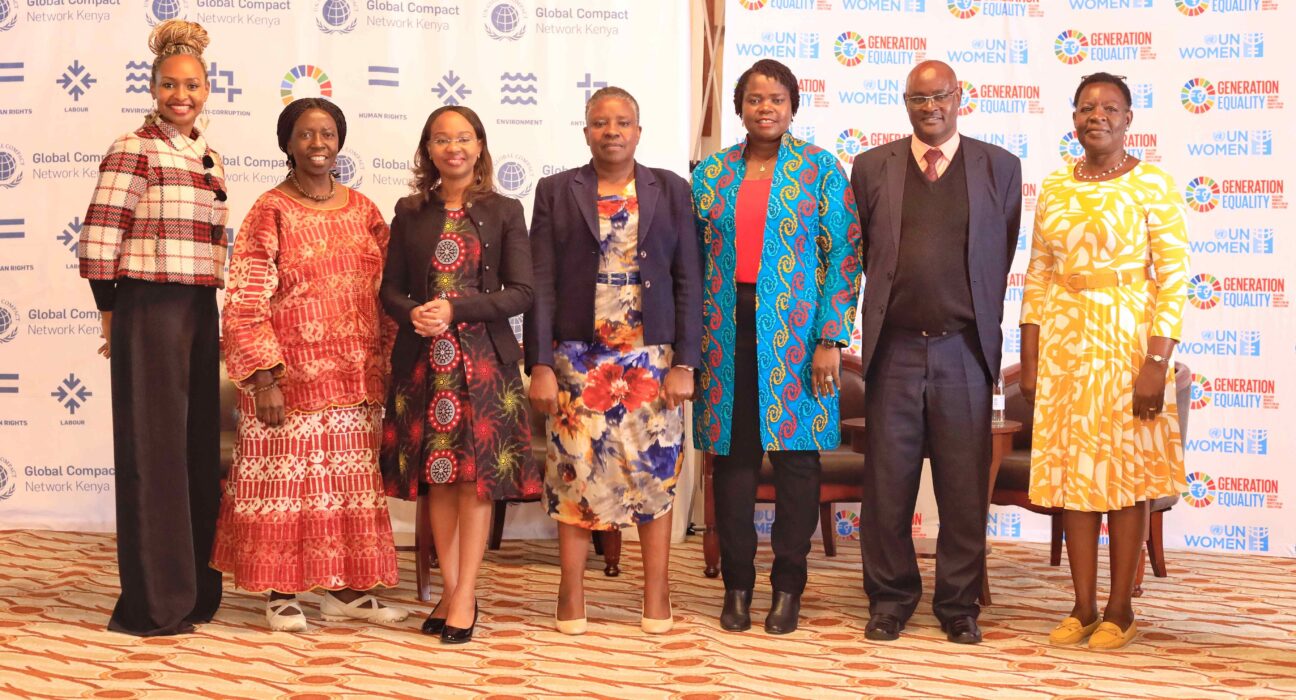At the Women’s Empowerment Principles (WEPs) Forum in Nairobi, stakeholders underscored the critical need to recognize and value the care economy, emphasizing that reducing the burden of unpaid care work is essential for advancing economic inclusion among women in Kenya.
The Principal Secretary of the State Department for Gender and Affirmative Action, Ms. Anne Wang’ombe, reaffirmed the government’s commitment to supporting women’s economic inclusion. She highlighted the pivotal role that the care economy plays in achieving this goal, noting that addressing unpaid care work is vital for unlocking women’s full economic potential.
The forum, themed “Care Agenda in the Private Sector for Gender Equality and Women Empowerment,” gathered representatives from Kenya’s private sector to discuss the heavy burden of care work predominantly shouldered by women. Participants focused on practical strategies and solutions to alleviate this burden, aiming to enhance women’s participation in the economy.
Key discussions centered on the need for comprehensive measures to support women’s economic empowerment by recognizing and valuing their contributions to the care economy. These efforts are seen as crucial steps toward building a more inclusive and equitable society.
Ms. Grace Wasike, Director of Social Economic Empowerment at the State Department for Gender and Affirmative Action, represented the Principal Secretary. She highlighted the disproportionate burden of unpaid care and domestic work on women and girls, which limits their access to opportunities for paid work, education, and political participation. Globally, 42% of women are outside the paid workforce, compared to just 6% of men, largely due to unpaid care responsibilities.
“It is crucial to recognize how addressing unpaid care and domestic work can bring substantial benefits to businesses. Companies that implement such policies are better positioned to attract and retain top talent,” Ms. Wasike stated.
Judy Njino, Executive Director of Global Compact Network Kenya, noted that despite women making up a significant portion of Kenya’s workforce, they remain underrepresented in leadership positions and often earn less than their male counterparts. The Global Gender Gap Report 2023 ranked Kenya 77th out of 146 countries, reflecting a persistent gender equality gap.
Ms. Njino outlined key actions for the private sector to reduce the burden on women, including investing in women as a human rights issue, offering flexible work arrangements, providing career development and mentorship programs, and ensuring equal pay and transparency.
“Advancing gender equality requires a concerted effort from all sectors of society. At Global Compact and UN Women, we have provided the WEPs as an actionable framework for businesses to advance gender equality in the workplace, marketplace, and community,” Ms. Njino said.
The Kenya Time Use Survey report (KNBS 2021) revealed that women spend approximately five times more time on unpaid care and domestic work than men—4 hours and 30 minutes per day for women versus 54 minutes for men.
UN Women Kenya Country Representative Anna Mutavati emphasized the need to recognize unpaid care’s contribution to the national GDP, reduce the care burden on women and girls, redistribute care tasks, and challenge traditional norms that hinder women from contributing economically.
Ms. Mutavati also stressed the importance of rewarding paid care work, including for domestic workers, and ensuring women’s representation in leadership and policymaking to achieve sustainable development and community welfare.
Studies indicate that if women and men participated equally in the economy, it could add up to US$28 trillion to global GDP by 2025. Additionally, the care economy could generate over 475 million jobs worldwide by 2030.





